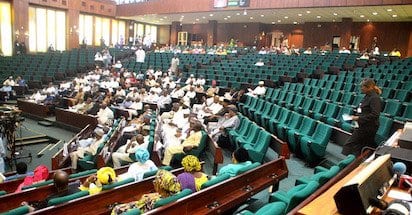In dictatorial democracy, assault rifles are often not needed to whip people into line. Leaders in such an environment do not need to photograph themselves wielding assault rifles to scare their victims from catching up with them. Such actions are carried out by ensuring a pliant legislature that is no less a rubber-stamp. And for a leader who has never hidden his disdain for other sections of the country, resistance becomes not an option but a duty. It is a decision to live or die.
The increasing assault on the freedom Nigerians enjoy by the All Progressives Congress, APC-led Federal Government, and the introduction of obnoxious and dangerous bills that are quickly passed by the Ninth NASS is worrisome. From hate speech to social media bill, and the speed with which the finance bill was passed with less input from lawmakers, the President Muhammadu Buhari-led administration and his pliant legislatures are setting Nigeria up for crises that will ultimately consume the country.
It seems increasingly likely that, wily and ruthless as it is, the APC-led federal government is working hard to enforce dictatorship through laws by handing excess powers to hands too full to act. The Water Resources Bill which seeks to bring all water sources (surface and underground) as well as river banks under the control of the Federal Government through its agencies is anti-democratic and an assault on the right of Nigerians to their God-given resources. It will lead to crises never seen before and must be shut down.
The Bill, which was rejected in 2018 by the 8th Assembly was re-introduced under the 9th Assembly because the country has a legislature that has submitted its honour to the executive. Section 13 of the Bill, states that: ‘In implementing the principles under subsection (2) of this section, the institutions established under this Act shall promote integrated water resources management and the coordinated management of land and water resources, surface water and groundwater resources, river basins and adjacent marine and coastal environment and upstream and downstream interests.’ The sponsors of such bill and those hoping it will be signed into law have their motives laid bare.
There is a momentum to such unpopular bills that promote sectional interests, and not to unite but divide and cause the spiralling insecurity to reach a height never seen before.
The NASS should concentrate itself with loosening the union through restructuring which will lead to a more prosperous country. The water resource bill is dangerous and should be condemned by all men and women of good conscience.




